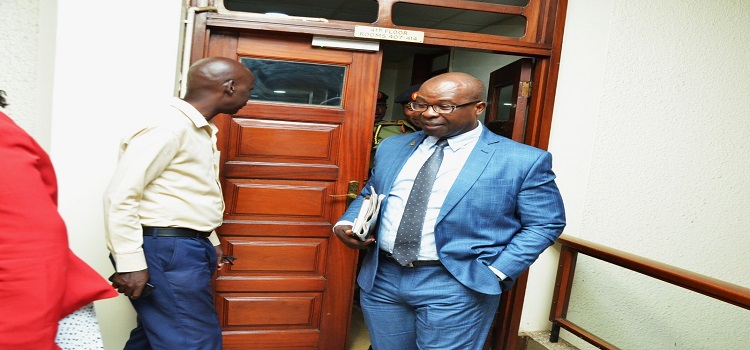KAMPALA, August 22, 2024 – The Ministry of Defence and Veteran Affairs has endorsed the Ministry of Education and Sports to host Uganda National Kiswahili Council, and promote the language in the country.
According to the Undersecretary in the Defence Ministry, James Mutabazi, their position is premised on the basis of the ministry’s position in curriculum development and their overall supervisory function over the education sector.
“The Uganda National Kiswahili bill, 2023 does not clearly specify who the minister for Kiswahili will be; it does not spell out the domicile ministry to host the council. The council would be most suitably hosted under the Ministry of Education and Sports given its role in language education and curriculum development,” said Mutabazi.
Mutabazi said this while appearing before parliament’s Committee on Gender, Labour and Social Development on Wednesday as officials presented their submission on the Uganda National Kiswahili Council Bill, 2023.
The Bill was first tabled in Parliament in February this year. The bill seeks to promote the usage of Kiswahili language in administrative, judicial and legislative process as a medium of communication by local governments.
It also seeks to establish the secretariat of the council to be headed by an executive secretary, provide for funds and auditing of the Council, and provide for making of bylaws to regulate the affairs of the staff of the Council.
Led by the State Minister for Defence and Veteran Affairs, Sarah Mateke, the officials said the Education Ministry would work in unison with other government bodies such as the National Leadership Institute [NALI] in Kyankwanzi which already runs Kiswahili programmes.
“Kiswahili is one of the areas of study at NALI; if you meet anybody who has trained from there, he has studied and has been assessed in Kiswahili,” said Maj. Gen. Henry Matsiko, one of Uganda People’s Defence Forces [UPDF] representatives in parliament.
The Defence Ministry also proposed that the council that intends to establish the Kiswahili Commission should be looked at as a unifying factor for the diverse ethnic groups in Uganda and ultimately, the unity of the eight-member East African Community.
Kyotera District Woman Representative, Fortunate Rose Nantongo supported the proposal for the Education ministry to host the National Kiswahili Council, cognisant of its influence over schools which have a wide audience.
“The ministry has the mandate over curriculum development right from nursery to university. I think they can do a better job on promoting the language, they have the biggest audience considering the number of children in schools, when children learn language at an early age it is very possible that they will take it up,” she said.
MPs asked the ministry to justify its representation on the Kiswahili Council as proposed in the bill.
“We need to know your relevance as representatives on the Council. What are you going to add to the council and what would be your input?” asked Nakaseke Central County legislator, Allan Mayanja.
However, Mawokota North MP, Innocent Kiyaga sought to understand the army’s strategies used to promote Kiswahili within the institution.
“We are deliberating on the strategies of how Kiswahili can be promoted to the population. I would like to know how the army has managed to have Kiswahili as their language? Do we impose it on people and do we make it compulsory in schools?” Kiyaga asked.
Meanwhile, regional leaders and stakeholders have renewed the call to the East African Community [EAC] Council of Ministers to fast-track the process of amending the Treaty for the Establishment of the EAC to enable the utilisation of Kiswahili as an official language in the region.
https://thecooperator.news/regional-leaders-push-for-use-of-kiswahili-as-official-language-in-eac/
Buy your copy of theCooperator magazine from one of our countrywide vending points or an e-copy on emag.thecooperator.new
